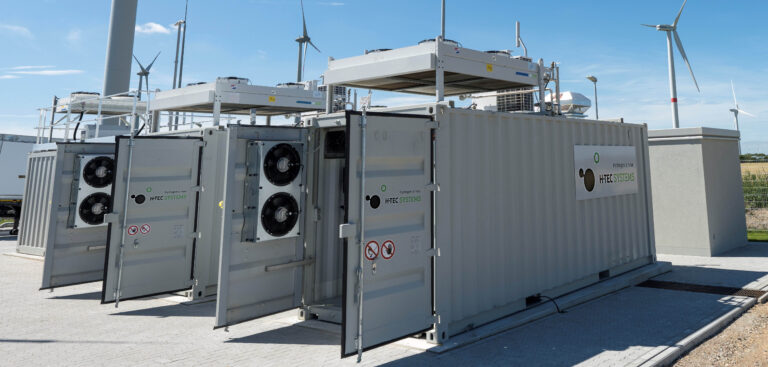At the 2022 United Nations Climate Change Conference (COP27) in Egypt, MAN Energy Solutions was a signatory to the Joint Statement on Green Hydrogen and Green Shipping.
The company signed the agreement with organizations across the shipping value chain and producers of green hydrogen such as the Aspen Institute, the Global Maritime Forum’s Getting to Zero Coalition, the Green Hydrogen Catapult, InterContinental Energy and A.P. Moller-Maersk. The document commits all signatories to the rapid adoption of green hydrogen-based fuels during the current decade to achieve full decarbonization of the shipping sector by 2050. Shipping currently accounts for 3% of global greenhouse gas emissions.
Signatories have agreed to pursue cross-sector collaboration to achieve commercially viable, zero-emission, deep-sea vessels from 2030 with the intention of using exclusively zero-emission-powered ocean-freight services by 2040. They will also scale up green hydrogen production to 5,500,000 tons per year by 2030. They also called upon international authorities and national governments to support private-sector commitments with a correspondingly ambitious policy, and specifically asked the International Maritime Organization and member states to commit to a 100% emissions reduction within the maritime sector by 2050 with robust, interim targets.
The joint statement was facilitated by Climate Change ‘High-Level Champions’ – UN nominees that connect governmental work with the voluntary and collaborative initiatives taken by cities, regions, businesses and investors – and non-profit energy organization, RMI.
Uwe Lauber, CEO of MAN Energy Solutions, said, “Decarbonization of the marine industry is a mammoth undertaking but, I believe, eminently achievable through cooperation with like-minded industry partners. At MAN Energy Solutions, we believe that hydrogen has a key role to play in getting to net zero, and our recent, significant investment in our hydrogen subsidiary, H-Tec Systems, intends to quickly transform it into a mass-producer of PEM electrolyzers. More than anything, the world needs a massive amount of industrially scaled, green hydrogen production to build momentum for the broad adoption of hydrogen as a maritime fuel.”



